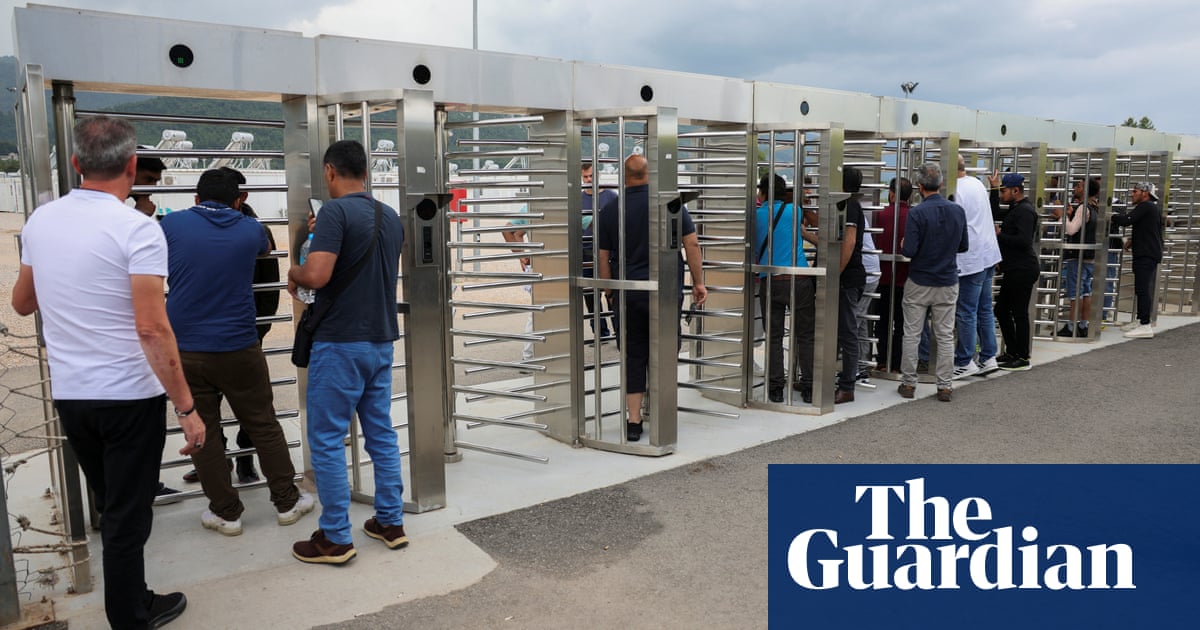
Another year is ending in Lebanon with little sign of a breakthrough. The council of ministers cannot meet because of a block by Hezbollah and its ally the Amal Movement.
All the indications are that the situation will go downhill from here. Elections due in May are unlikely to bring any drastic change. The only hope comes from presidential elections due later in 2022, but in the meantime the Lebanese will have to endure a difficult year.
During the holiday season the US dollar exchange stabilized at 26,000 to 27,000 Lebanese pounds. However, the rate was steady because many expatriates returned during the Christmas break to spend time with their families, bringing hard currency with them.
This small bout of economic activity is likely to dissipate in the new year, and the exchange rate against the dollar is likely to continue to increase.
No one really knows how much Lebanon has in its central bank reserves. The governor has been evasive on the issue, and with no hard currency reserves, the pound is likely to continue to fall.
According to economist and financial expert Samir Nasr: “Without a comprehensive plan that includes fiscal reforms, bank restructuring, administrative measures, social support mechanisms and a boost for the private sector along with public investments, there are no positive prospects. Partial measures and incomplete reforms don’t work and do not build confidence. If the government agrees to an IMF program, this will be a good sign.”
However, there is no agreement among the political class in order to start negotiations with the IMF.
During his visit to Lebanon, UN Secretary-General Antonio Guterres said politicians had no right to remain divided and paralyze the country. The Hezbollah alliance with President Michel Aoun, making it the de facto force ruling the country, is in a precarious state. Parliamentary Speaker Nabih Berri, an ally of Hezbollah, has a toxic relationship with Aoun.
While the political class holds on to power, they cannot even agree among themselves, resulting in a stalemate that is likely to continue. Since they control the “state,” they control any services that can be provided to the Lebanese people. This means each sectarian leader can control those of their own denomination — even more so now, with people in dire need.
The international community could always introduce sanctions, but the political class is unlikely to flinch. Gebran Bassil, the president’s son-in-law, seems unperturbed by the curbs and is still hopeful of becoming president in 2022.
The US administration and the international community are keen to provide humanitarian aid and prevent a total collapse, but this is not a solution. Elections due in May are unlikely to uproot the current political class, which has decades of experience and a strong electoral machine.
However, the vote may change the parliamentary arithmetic and take power from Hezbollah, as the Christian electorate moves toward Aoun’s rival, the Lebanese Forces party led by Samir Geagea. This will weaken Hezbollah, which will lose its Christian “cover” and parliamentary majority.
Aoun’s speech on Monday in which he promised to “turn the table” brought nothing new. It was a hopeless and failed attempt to recover some of the popularity he lost because of his alliance with Hezbollah. Although the president criticized those “blocking “the government, he did not dare mention Hezbollah.
Despite the grim outlook for Lebanon, activists have a glimmer of hope. Hayat Arslan, a seasoned political activist, told me there were three pillars on which the Lebanese could base their optimism: High voter registration by expatriates (who are not subject to the same pressures as Lebanese at home), the resilience of the judiciary, and the reliability of the army.
On voter registration, the constitutional council has so far refused the request by the Free Patriotic Movement to restrict voting by expats, which could be significant in six seats. A total of 225,000 expats are registered, of whom 27,000 are in the district represented by Gebran Bassil — Hezbollah’s main ally. Those votes will make a difference, and definitely have the power to change the parliamentary majority.
Also, the head of the judiciary has resisted pressure to fire judge Tarek Bitar from his role in charge of the investigation into the 2020 Beirut port explosion.
Meanwhile the armed forces have proved to be a coherent, cohesive, professional and patriotic institution. This was seen in the violent clashes in the Tayouneh neighborhood of Beirut in October when the army stepped in against Hezbollah militants.
Despite the breakthrough that civil society may score in May, there is little hope of a change in the system. However, there is a chance for change toward the end of 2022. If enough pressure is exerted on the political class, coupled with a change in the parliament, the next presidential elections may bring in a personality committed to reforms, and with enough courage to confront the political class and deny them their privileges. This might be the start of a long process leading to a reformed Lebanon.
With the Lebanese facing worsening poverty, there is little hope for change in the near future. However, it is increasingly clear to the Lebanese and the international community that the current political system is the source of all the country’s ailments and that unless this changes there will be no resurrection for the country.
Dr. Dania Koleilat Khatib is a specialist in US-Arab relations with a focus on lobbying. She is co-founder of the Research Center for Cooperation and Peace Building, a Lebanese nongovernmental organization focused on Track II. She is also an affiliate scholar with the Issam Fares Institute for Public Policy and International Affairs at the American University of Beirut.
Disclaimer: Views expressed by writers in this section are their own and do not necessarily reflect Arab News" point-of-view











